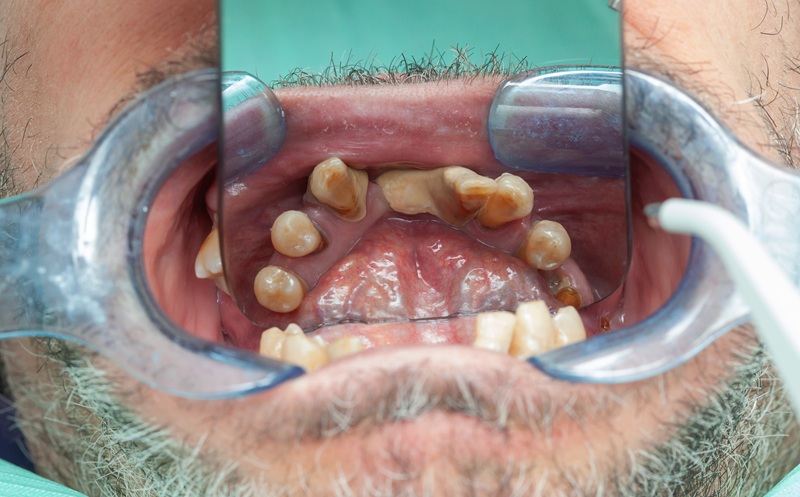What Happens in Dental Erosion?

Your teeth are among the strongest substances in your body, designed to withstand constant wear from chewing and speaking. However, despite their robust nature, teeth are vulnerable to various conditions, one of the most common being dental erosion.
Have you noticed your teeth looking more yellow or feeling extra sensitive lately? It might be more than just wear and tear—it could be dental erosion.
If you’ve never heard of this before, don’t worry. You’re not alone. Many patients first learn about it during their first dental visit, especially if they’ve been dealing with tooth sensitivity or visible changes in their enamel.
Let’s take a moment to explore what dental erosion is, what causes it, and what you can do to prevent and treat it.
Understanding Tooth Enamel and Dental Erosion
Dental enamel is the hardest substance in your body, even stronger than bone. It acts as a protective shield for the sensitive inner layers of your teeth, including the pulp that holds the blood vessels and nerves to the teeth. While it is durable and strong, unfortunately, enamel is not indestructible, especially when it is exposed to acidic substances.
Dental erosion is the loss of tooth structure on the enamel due to contact with acidic substances. Unlike tooth decay, which involves bacteria, dental erosion happens when acids—either from the food and drinks you consume or from your stomach—dissolve the outer layer of the enamel.
Let’s break down where these acids come from.
The Two Main Types of Acid That Cause Dental Erosion
1. Extrinsic Acids – From Outside the Body
These acids come from the things we eat and drink. This includes:
- Soft drinks and energy drinks
- Citrus fruits like lemons and oranges
- Fruit juices
- Wine and other alcoholic beverages
- Foods with a lot of vinegar (like pickles or salad dressings)
- Lemon water (even if it seems healthy!)
Even though some of these foods are part of a balanced diet, eating them often or not rinsing your mouth afterwards can lead to dental enamel erosion over time. The acid from these foods and beverages wears away the enamel, making your teeth more vulnerable to damage.
A common sign of erosion from food is when your teeth start to appear yellow or orange. That’s the underlying dentin showing through because your enamel is thinning.
2. Intrinsic Acids – From Inside the Body
These acids come from your stomach. Conditions like reflux (GORD) or frequent vomiting can bring stomach acids up into your mouth, especially when lying down or after eating greasy meals.
Symptoms of Reflux-Related Dental Erosion:
- Heartburn
- Bad taste in your mouth, especially in the morning
- Acidic or burning sensation after meals
- Worsening symptoms when you lie down
In these cases, stomach acid makes your saliva acidic too. This acidic saliva then sits around your teeth, especially the back teeth, and damages the enamel over time.
People who vomit frequently (due to illness, pregnancy, or eating disorders) often have damage to the top front of their teeth. This happens because the tongue protects the lower teeth during vomiting, but the upper ones are left exposed.
Early Signs of Dental Erosion
Dental erosion often starts quietly, but there are still telltale signs to keep you alarmed. Here’s what to look out for:
- Teeth that look more yellow or orange
- Sensitivity to hot, cold, or sweet foods
- Rough, worn-down edges on your teeth
- Teeth that feel uncomfortable when chewing
If you notice any of these, it’s a good idea to book your first dental visit or your next check-up with your dentist. Remember that early diagnosis can make a big difference to your oral health.
Dental Erosion Treatment: What Are Your Options?
For Mild Cases:
If you still have most of your enamel and can eat normally, your treatment focuses on preventing further erosion, including:
- Reduce acidic food and drinks
- Use a high-fluoride toothpaste
- Adjust your diet and oral hygiene habits
- Treat the cause of reflux or vomiting
For More Serious Cases:
If the enamel is very thin or completely worn away, your teeth might be sensitive and painful when chewing. In these cases, your dentist may recommend restorative treatments that are made of porcelain or resin, like:
- Dental bonding – Using resin to rebuild the surface of the tooth
- Veneers – Thin shells placed over the front of teeth for protection and appearance
- Crowns – Full coverage restorations to protect damaged teeth, often used on back teeth
These treatments may help restore your smile and make eating more comfortable. Your teeth will also be protected from further damage and other dental problems.
Importance of Your First Dental Visit for Erosion
Scheduling your first dental visit promptly upon experiencing any signs of erosion or discomfort is a must to ensure your dental structure is protected from further wear and tear. Early diagnosis allows your dentist to identify risk factors, assess the extent of erosion, and recommend suitable preventive or restorative treatments. This proactive step helps maintain optimal oral health and reduces the likelihood of extensive restorative procedures in the future.
During your dental appointment, the dentist will perform a thorough examination, possibly taking dental X-rays or employing other diagnostic tools to evaluate enamel condition closely. Additionally, you will be receiving personalised guidance on dietary modifications and appropriate oral hygiene practices.
Aside from an intervention from the dentist, dental erosion can also be prevented through these easy ways:
- Drink water instead of soft drinks and juices
- Limit acidic snacks and drinks
- Use a straw to minimise contact with teeth
- Rinse your mouth after acidic meals
- Chew sugar-free gum to increase saliva
- Don’t brush immediately after acidic meals or vomiting—wait at least 30 minutes
- Visit your dentist regularly for check-ups
Protect Your Enamel, Protect Your Smile
Dental erosion is more common than people think—and it can sneak up on you if you’re not paying attention. Whether it’s from the foods you eat or underlying health issues, the good news is that early detection and proper care can make a huge difference—and this can happen on your first dental visit.
If you’re noticing signs like sensitive teeth, yellowing, or discomfort while chewing, don’t ignore it. You can always trust our dental professionals at Whitehorse Dental to help you address anything regarding your teeth.
Book your first dental visit with us today to experience the care and expertise we provide.




